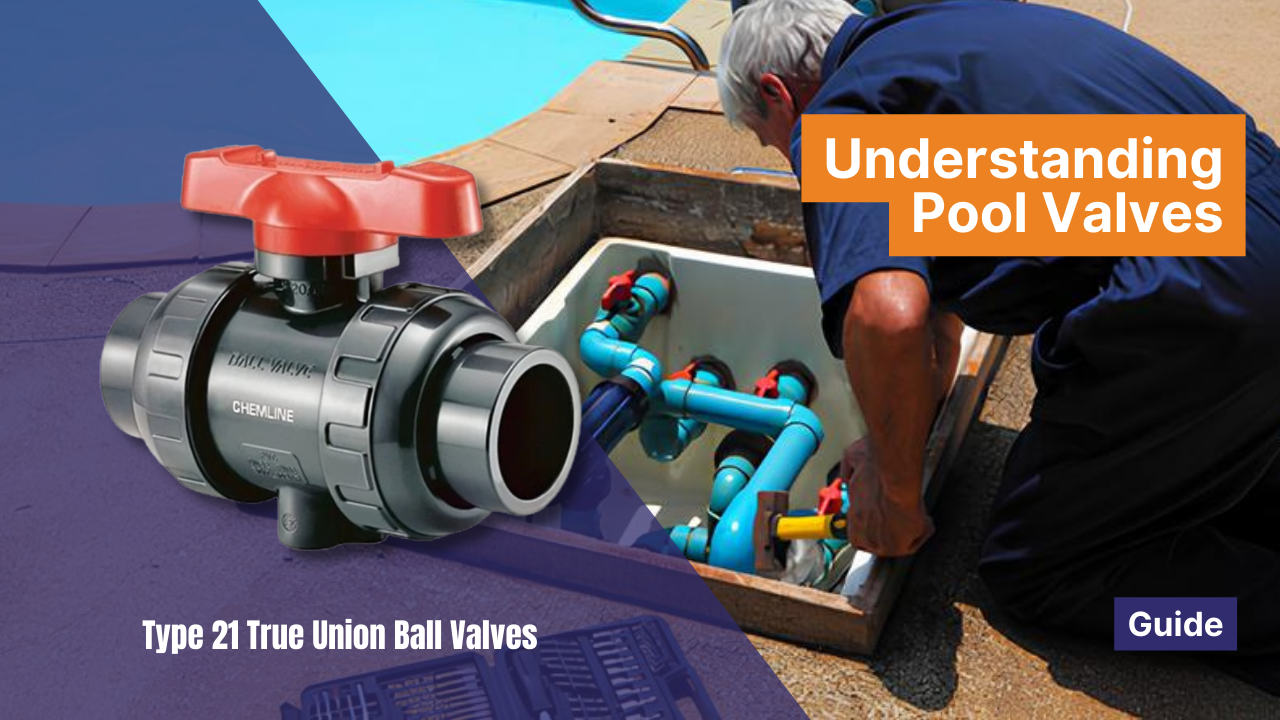
Understanding Pool Valves
Pool valves might seem small, but they are crucial in keeping your swimming pool clean and safe. These valves are essentially gates in your pool's plumbing system, directing the flow of water where it needs to go while keeping debris and dirt out of your pool. Let's take a closer look at what pool valves do and why they matter.
What Exactly is a Pool Valve?
Think of your pool's plumbing system as a series of pathways that water travels through. This system has three main parts:
1. Suction side: This is where water is pulled into the system from the pool. It includes skimmers (those small openings along the pool's edge), main drains, and suction lines.
2. Filter system: Once the water is pulled in, it goes through a filtration process to clean it up. This system includes a pump, a filter, a heater, and often a chlorinator.
3. Return side: After cleaning the water, it's pumped back into the pool through return lines and jets.
Now, the role of pool valves is to control the flow of water through this system. They ensure water goes where it needs to for cleaning and heating before returning to the pool.
Types of Pool Valves
There are a few different pool valves, but the most common ones are gate, ball, and check valves.
Gate valves: These valves regulate water flow by rotating a gate across the water path. They're often used to open or close supply lines.
Ball valves: They are super efficient valves that use a quarter-turn mechanism to shut off water flow. They're easy to install and maintain, making them a popular choice. Plus, they can be operated manually or automatically.
Check valves: These valves prevent water from flowing backwards in your system, which can happen when the pump turns off. They're crucial for maintaining water quality and preventing damage to your equipment.
Materials Matter
When it comes to pool valves, the materials they're made of are important. They need to withstand exposure to chemicals like chlorine and bromine. Common materials include PVC and stainless steel, both resistant to these chemicals.
Why Pool Valves Are Essential
Pool valves might not be the most exciting part of your pool, but they're essential for keeping it clean and functional. Without them, water wouldn't flow properly through the system, and your pool could become dirty and unsafe.
So, the next time you're lounging by the pool, take a moment to appreciate the unsung heroes keeping your pool water crystal clear. It's all thanks to those little valves doing their job behind the scenes.
Our Top Pool Valve Pick - The Type 21 True Union Ball Valves
The Chemline Type 21 True Union Ball valve is a full port, blocking valve pressure rated at 16 bar (230 psi). Double stem o-rings provide for a high degree of safety on hazardous fluid applications. All sizes have an ISO standard actuator mounting platform for mounting of pneumatic or electric actuators.
✓ Full Port High capacity and low pressure drops
✓ Fully Blocking Downstream union nut may be safely disassembled for piping maintenance while valve is closed off under full system pressure
✓ Pressure rated to 230 psi Provides a high factor of safety
✓ Safety Shear Stem Design Double Stem o-ring Design allows valve to hold full pressure even if stem breaks due to excessive torque
✓ Built-In Spanner Wrench Top of the handle is designed to be used as a tool for accessing internal parts
Contact Us
Don't hesitate to contact us if you have any questions about our pool valves by emailing sales@pvl.co.uk or calling +44 (0) 1892 66 44 99


